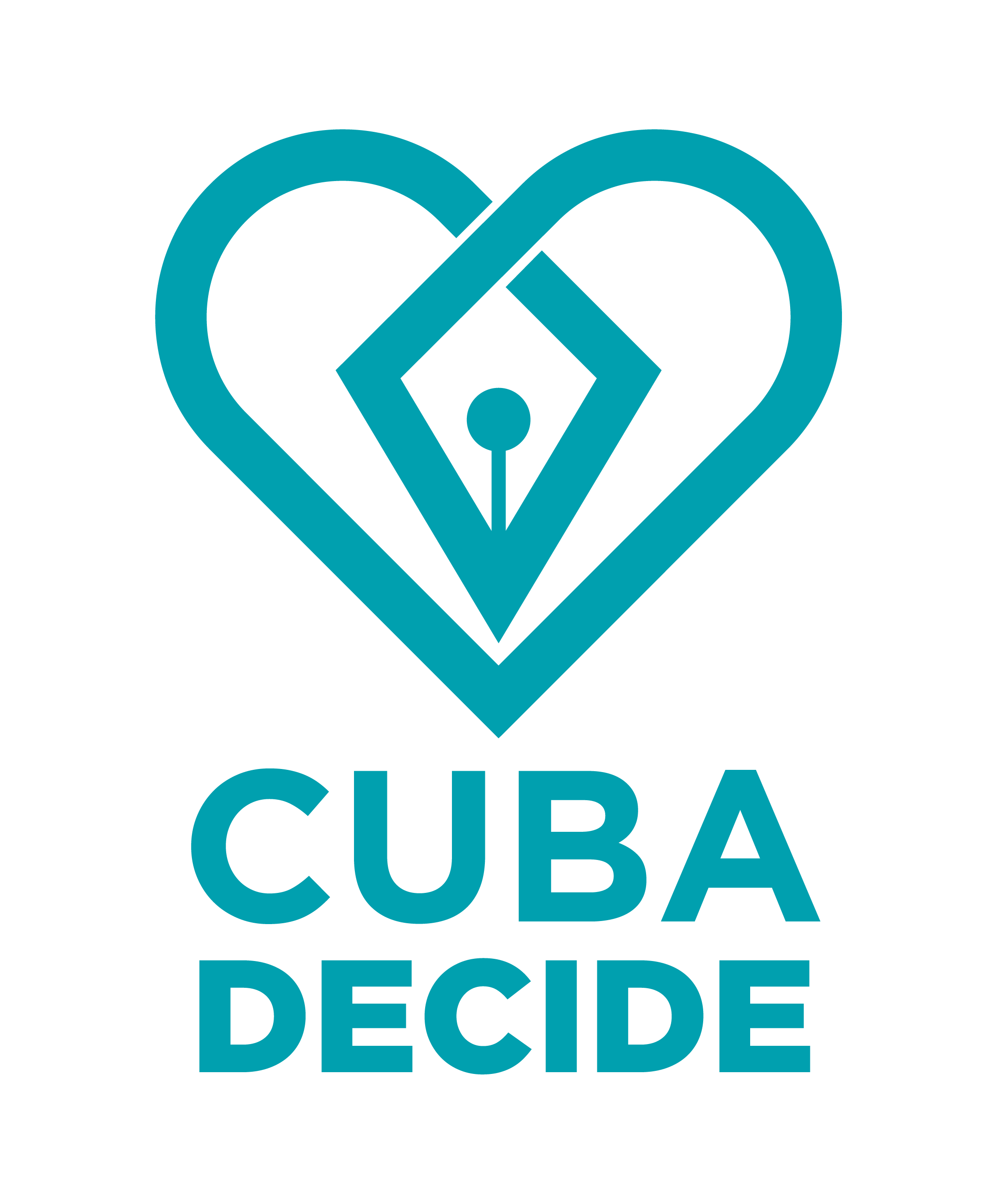This website uses cookies so that we can provide you with the best user experience possible. Cookie information is stored in your browser and performs functions such as recognising you when you return to our website and helping our team to understand which sections of the website you find most interesting and useful.
Cubans vote on a new constitution as government campaigns hard for approval
The Cuban regime harshly represses opponents campaigning against its Constitution
3 April, 2019Luis Almagro “no reconoce” las “instituciones” creadas por la Constitución en Cuba
3 April, 2019Turnout was high as Cuban voters went to the polls Sunday to cast a vote of sí or no for a new constitution in a referendum that has seen more campaigning, both for and against, than any Cuban election in decades.
Some 8.7 million Cubans were eligible to vote for the first total overhaul of the Cuban constitution in 40 years. By 5 p.m., Cuba’s National Election Commission reported that 7, 524, 318 Cubans, or 81.53 percent of the electorate, had voted. Results are expected to be announced on Monday afternoon.
Cuban leader Miguel Díaz-Canel, who stood in line with his wife and neighbors to vote, called the referendum “a victory for our entire country.” In a video message tweeted by Cuba’s Communist Party, he emphasized that the new constitution “defends socialism and the revolution.”
More than 24,000 polling stations across the island opened at 7 a.m. and closed at 6 p .m. following a campaign in which the government has used social media extensively to advocate for a “Yes” vote, and opponents have urged a “No” vote or a boycott of the referendum.
But the government went beyond simply advocating for the new constitution. It also has cracked down on Cubans working on the “No” campaign and seized computers, USB drives and other work materials from their homes. Advocates of the “No” vote staged demonstrations in both Havana and Santiago de Cuba Saturday.
While the outcome of the referendum isn’t really in doubt, the percentage of who will vote for ratification is. It’s not expected to approach the 97.6 percent approval rate the current constitution got.
Cuban diplomats, workers on international missions, and students studying aboard voted last Saturday in more than 100 countries. But there has been criticism that a broader range of Cubans living overseas weren’t able to vote. State media reported that around 23,000 Cubans, mostly doctors and medical personnel, on official missions in Venezuela were eligible to vote there, but in Spain, where there is a large Cuban community, only diplomats at the Cuban Embassy voted.
The Sunday referendum capped a lengthy process for the constitutional overhaul that began back in 2013. A draft constitution was approved by the National Assembly of People’s Power in July and then was circulated throughout the country last fall for a public comment period that included nearly 112,000 public meetings at workplaces, schools and community centers.
A 33-member constitutional commission headed by Communist Party leader Raúl Castro sifted through hundreds of thousands of suggestions for modifications, eliminations and additions offered by the public to produce the document for Sunday’s vote. It was approved by the National Assembly in December.
With a few exceptions, the final document was quite similar to the draft. One notable difference was the elimination of a provision allowing gay marriage. After push-back from the churches in Cuba and criticism at the public meetings, it was dropped from the final version amid government fears it could be a drag on the “Yes” vote.
But some opponents of the new 229-article constitution say the final tallies in the referendum scarcely matter.
“Whatever the official results are, they aren’t important because they are not credible,” said Rosa María Payá, a Cuban activist who heads Cuba Decide, which has called for a binding plebiscite on whether Cubans think fair, just and pluralistic elections should be called.
Cuba Decide, she said, planned to send observers to polling stations to watch the vote count.
Several activists who tried to observe the voting were detained on Sunday, according to José Daniel Ferrer, an activist from the Patriotic Union of Cuba who was detained several times in the run-up to the vote.
The new constitution still affirms the Communist Party’s guiding role in Cuban society and socialism is proclaimed as being irreversible, but there is a recognition, for the first time, of a role for private business and cooperatives. It also recognizes private property and adds some new legal rights in criminal cases.
Also new are term limits for the president of the republic, creation of the post of prime minister, and a more streamlined structure for local and provincial governments.
Those provisions, said Payá, are meant to distract people from what she deems the main problem of the new constitution: the assertion that “the Communist Party is the director of Cuban society forever.”
“The whole process is illegitimate and the referendum is not transparent or free,” Payá said.
This is the first time Cubans have gone to the polls since they have been able to access the internet on their cellphones, allowing social media to play a more important role in the Cuban political process.
Government officials, starting with Díaz-Canel, have been burning up their Twitter accounts with messages about the virtues of the new constitution, which has been totally rewritten for the first time since 1976.
With the new constitution, “Cuba will be a better country, more up-to-date,” Díaz-Canel said on his Twitter account.
The government also has been posting videos on social media of celebrities and politicians advocating for the “Yes” vote.
Among them was Gerardo Hernández, a Cuban spy who was convicted in Miami of murder conspiracy charges after Cuban MiGs shot down two small Brothers to the Rescue planes with four Miami-based pilots aboard in 1996. When the United States returned Hernández and four other Cuban spies to the island in 2014, they were hailed as heroes.
“There are only two sides … and those who call us to vote “No” are precisely the traditional enemies of Cuba, those who have historically supported the criminal blockade (the Cuban term for the embargo), terrorism, those who have caused so much death and so much pain in our country,” Hernández said in the video.
The government’s preferred Twitter hashtags #CubaVotaSí (Cuba votes yes) and #YoVotoSí (I vote yes) have been answered by the opposition’s #YoVotoNo (I vote no )and #YoNoVoto (I don’t vote).
Approval of the constitution is a high-stakes matter for the Cuban government.
“This is the first time I can recall that the government has really reached out and encouraged people to get out and vote,” said Andy Gómez, the retired director of the University of Miami’s Institute for Cuban and Cuban-American Studies. “They have campaigned very hard.”
#YoVotoSí has turned up everywhere from banners on government buildings to T-shirts and signs in supermarkets and on buses.
Opposition forces also painted “No” signs, printed up T-shirts and staged a Twittazo, a Twitter protest, on Thursday, Friday and Saturday. On Sunday, five-minute cacerolazos, typical Latin America protests that involve beating on pots and pans, were called for noon, 2 p.m. and 4 p.m.
But with the government still controlling radio and television as well as nearly all newspapers, magazines and news services in the country, it hasn’t been a level playing field in the campaign for the constitution.
Christian Solidarity Worldwide said that some Christian churches on the island also were pressured by the Communist Party to instruct their members to vote “Yes.”
CSW complained that on Feb. 20, Rev. Carlos Sebastián Hernández, president of the Western Baptist Convention, received a threatening call from Sonia García, deputy director of the Communist Party’s Office of Religious Affairs, in which she said he would no longer be “treated as a pastor, but rather as a counter-revolutionary.”
Earlier this month, the Catholic bishops of Cuba issued a message expressing concerns about several areas of the new constitution. In the preamble, they raised objections to this phrase: “Only in socialism and in communism does the human being reach full dignity.” The bishops said that excludes “other visions about man, society and the universe that don’t assume Marxist-Leninist ideology.”
Such a phrase in the constitution, they said, excludes the effective exercise of the right to plurality of thought about man and the ordering of society.” Such pluralism could be safeguarded by the constitution, said the bishops.
In recent weeks dissidents working to encourage the “No” vote say they’ve been harassed, detained and, in some cases beaten, by state security officers. Payá said the Santiago de Cuba homes of some activists working on the “No” campaign and on teams organizing as observers have been under siege by the military during the past week.
“The Cuban military wants to prevent the Cuban people from exercising their right to say ‘No’,” she said. To protest, Payá said, 121 activists across the island have gone on a hunger strike. That number couldn’t be independently confirmed.
Although Payá said that social media use has increased in Cuba in the past two years, “it’s still precarious. We still have to go door-to-door with printed materials and face-to-face to explain the fraud the government is trying to commit.”
Source: Miami Herald

